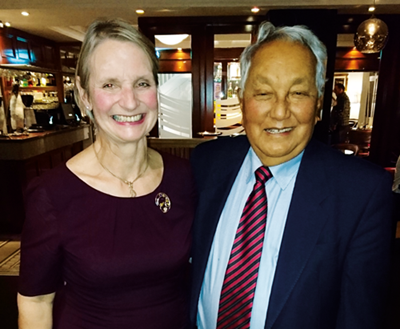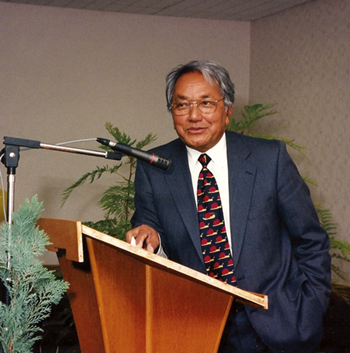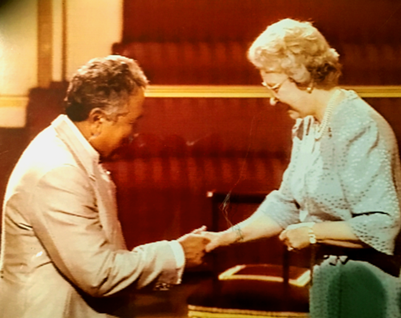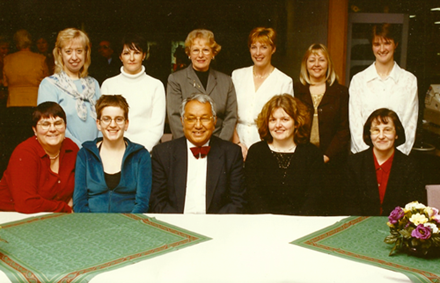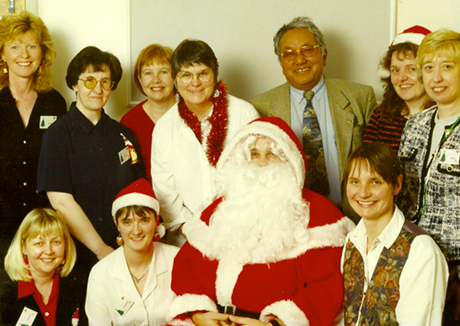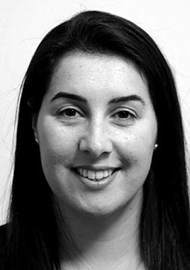Not many people know that one of the UK’s first cochlear implant surgeons was Raj Singh, OBE, an Indian immigrant whose passions for otology and technology led him to found the Scottish Cochlear Implant Programme, and the Help to Hear Foundation. Natasha Amiraraghi met him to find out more.
It was a crisp November evening when I first met Mr Singh, he had a firm but kind handshake and a warming smile. This was a poignant evening, as one of my own mentors, Mary Shanks was celebrating her retirement, and I was meeting her mentor! Mr Singh was generous with his time and as I came to learn from the interview, a very personable and modest surgeon who emotively did the best for his patients. He set up the Help to Hear Foundation in 1988 to initiate the Scottish Cochlear Implant Programme (SCIP) prior to NHS Funding being available. The charity still runs today and helps provide non NHS funded resources for CI patients. For this extraordinary work he was awarded an OBE in 1994. Let’s take some time to get to know him better…
Mr Singh with Miss Shanks in November 2017.
Mr Singh, thank you so very much for agreeing to allow us all a little peek into your journey as an otolaryngologist and founder of the SCIP. Tell us a little about yourself, starting with your early medical school education and what sparked your interest in surgery.
I was born and brought up at Imphal the capital of the state of Manipur in the far eastern corner of India, adjacent to Myanmar. I studied medicine at The Assam Medical College, Dibrugarh, India. It was a residential college. It was like a large happy family. I will always remember the amazing time I had during that period. I always wanted to be a surgeon, I do not know the reason; perhaps it was the perceived glamour!
“I always wanted to be a surgeon, I do not know the reason; perhaps it was the perceived glamour!”
Was there an event that altered the course of your life / character and career?
I had a subarachnoid haemorrhage in 1961. I was very well looked after by Prof Norman Dott and his team at Edinburgh Royal Infirmary. After several months of care, I recovered fully. I am very grateful for the expert and gentle care I received. That incident made me realise the frailty of life, and changed many of the concepts I had.
How and where did you progress through your training and career and at what point did you decide on ENT and why?
While I was recovering from the illness, I was bored and desperate to go back to work. I accepted an ENT SHO post at the Royal Northern Infirmary, Inverness. The introduction of micro surgery and the power drill was bringing about a dramatic change in ENT (otology). I found it exciting and interesting and decided to take it on as a career. The rest of my higher surgical training was at Dundee Royal Infirmary.
What was your main clinical area of interest and what were your main career highlights?
During my stay in Dundee, Jack Hough a much respected otologist visited our department. He was demonstrating and teaching his own brand of stapedectomy (Platinectomy). The full length of the posterior crus and the rest of the stapes superstructure is preserved and moved over the promontory. The footplate is removed and the oval window was sealed with the perichondrium taken from the tragus. The super structure is returned to the original position, the posterior crus placed on the perichondrium. This was a very skilful procedure with remarkable results.
“One of my fondest memories was receiving a letter and graduation photograph, from one of the children who received a cochlear implant in 1990.”
One highlight ,I can think of is about an airline pilot who lost his licence because of deafness caused by bilateral otosclerosis. I carried out bilateral platinectomy and restored his hearing. This was the only type of stapedial surgery accepted by the Civil Aviation Authority (CAA). He renewed his licence and continue to fly until he retired.
One of my fondest memories was receiving a letter and graduation photograph from one of the children who received a cochlear implant in 1990.
Mr Singh presents…
What was your motivation to implement the Scottish Cochlear Implant service?
The disappointment and frustration of telling every profoundly deaf person or parent of profoundly deaf children that I couldn’t do anything for them. Cochlear implantation goes some way towards solving the issue.
How did you deal with the sceptics of the era?
Self-belief and total understanding of the undertaking.
What are the main changes you have seen in ENT and in society since CI become more accessible?
The cochlear implant is now a standard and routine intervention. There are several benefits to the implantee and society. However in one sentence: “It changes people’s quality of life” beyond our expectation.
Mr Singh is honoured by Queen Elizabeth II in 1994.
Who are your heroes and mentors and how did they influence you?
Alan Gibb was my teacher and mentor. I learned everything I know from him. Jack Hough taught me the unique surgical procedure of platinectomy and I am grateful to both of them.
What do you regard as the greatest challenge you faced and how did you overcome it?
One of the greatest challenges was to raise a sum of £300,000 to kick start the cochlear implant programme. Fortunately I had many good friends and colleagues who were very supportive and worked hard. It was a great relief to achieve the objective, in less than two years, with their help.
What influences do you think we should demonstrate as a clinical leader and /or as a patient’s advocate?
It is crucial to deliver the highest quality of service safely. It is my view that there are two elements:
- Clinicians should continuously appraise and update their skills.
- Patients should always select the treatment from the informed choices available.
What are the most important lessons your professional career has taught you?
The most important lesson is, it is not only the surgeon but the team that delivers the best surgical care. I was very fortunate; I had the best team I could wish for.
What advice would you give to a young ENT trainee?
Safety is paramount. Know your limitations. Do not hesitate to seek help. The old adage, the customer is always right, so listen to what the patients have to say.
Of your time spent training and working in different areas, describe some of the main differences in ENT practice and whether this influenced you and your career pathway?
ENT is one of the most interesting and fulfilling specialties. As a specialist in a District General Hospital I did not have the luxury of specialisation. However I found otology exciting and challenging and that was my choice.
As a busy clinician how did you take time out and relax? Have your hobbies changed in retirement?
I love travelling. Fortunately I have been to some of the most beautiful and interesting places in the world. In retirement I found time to curl, bowl and turn wood.
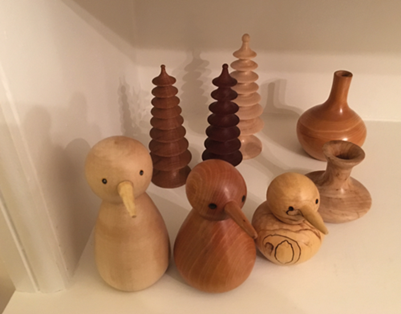
Wood turning products.
“I had a subarachnoid haemorrhage in 1961. That incident made me realise the frailty of life, and changed many of the concepts I had.”
If you could only pick three surgical instruments to take to a desert island what would they be and why?
I assume that there would be no surgery on a desert island! However I will pick a knife, a chisel and a mallet. I might spend some time wood carving.
Mr Singh and the Scottish Cochlear Implant Programme team at Mr Singh’s retirement party.
Mr Singh at the Scottish Cochlear Implant Programme Christmas Party.
Do you have any unfulfilled ambitions which continue to haunt you?
I am not an ambitious person. I am very happy with what I have achieved. In retirement I would like to spend my time doing things I didn’t have time for when I was working.
I am sure retirement is enjoyable; however is there one thing you miss from your surgical career?
I miss the camaraderie with my colleagues, bouncing ideas and learning from each other.
Now that you are retired, how would you spend your fantasy 24 hours, with no travel restriction?
I would love to be in a space capsule looking back towards the blue dot we call home.
Do you have any unlikely interests which engage your curiosity?
I find genetics fascinating. The CRISPR is making gene editing easier, faster and cheaper and the epigenetics may provide answers to many of the medical issues including deafness.
What figure from history would you like to dine with?
Nelson Mandela. It would be the most interesting and fulfilling life time experience.

